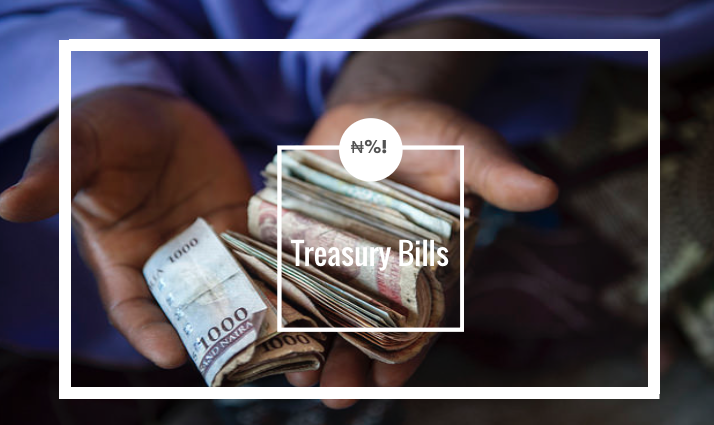- FG to Repay N482bn T-bills Debt in Second Quarter
The Federal Government is planning to repay N482bn of treasury bills in the second quarter and will halve the amount it wants to raise between March and May to lower borrowing costs, according to a debt auction calendar seen by Reuters on Wednesday.
A total of N964bn worth of bills will fall due in the second quarter, of which the government is planning to roll over N482bn.
News of those plans sent yields down by 0.4 per cent on the secondary market on Wednesday, according to traders.
The Federal Government had sold a $2.5bn Eurobond in February to help refinance naira-denominated treasury bills at a lower borrowing cost.
The debt office said on Wednesday it would repay the bills in phases as they mature.
The 91-day bill shed 0.4 per cent to 13.8 per cent on Wednesday.
The nation’s external reserves hit $46bn on Friday.
The Central Bank of Nigeria said the latest indicated that the reserves grew by about $3.2bn between February and March this year.
The reserves at the beginning of 2018 stood at $39.3bn, then rose to $42.8 in February before hitting the new high of $46bn.
The CBN Acting Director, Corporate Communications, Isaac Okorafor, attributed the continued accretion to the country’s reserves to the bank’s effort at discouraging unnecessary importation and reducing the nation’s import bill; inflow from oil and non-oil exports, as well as the huge inflows through the Investors and Exporters FX window of the foreign exchange market, which he said had attracted over $33bn since April 2017, when it was created.
At the close of commodities trading on Friday, March 9, 2018, Brent Crude, sold at $65.49 a barrel up by 2.54 per cent.
According to him, the bank’s interventions in the foreign exchange window have also helped to moderate the pressure on the forex reserves by sustaining liquidity in the market and boosting production and trade.
Okorafor also noted that the CBN policy restricting access to forex from Nigeria’s foreign exchange market to importers of some 41 items had made a huge impact on the status of Nigeria’s reserves and boosted the supply of local substitutes for imported goods, created jobs at home and enhanced the incomes of farmers and local manufacturers.
The external reserves had hit $43.2bn on March 6, data on The CBN website showed.
The foreign exchange reserves had recorded a four-year high at $42.76bn on March 2, after commencing this year at $38.77bn.
The foreign exchange buffer of the CBN has continued to increase recently over steady increase in global oil prices and federal government Eurobond borrowing, among others.
The CBN Governor, Mr. Godwin Emefiele, has projected that the reserves might hit $60bn in 2019, if the trend persists.
He said increases in the price and shipment of oil, Nigeria’s biggest foreign-currency earner, and improved investor confidence meant the CBN could build its reserves to $60bn over the next 12 to 18 months.


 Naira4 weeks ago
Naira4 weeks ago



 Naira4 weeks ago
Naira4 weeks ago
 Billionaire Watch4 weeks ago
Billionaire Watch4 weeks ago






 Naira4 weeks ago
Naira4 weeks ago


 Naira3 weeks ago
Naira3 weeks ago






 Naira3 weeks ago
Naira3 weeks ago
 Economy4 weeks ago
Economy4 weeks ago


 Naira3 weeks ago
Naira3 weeks ago





















